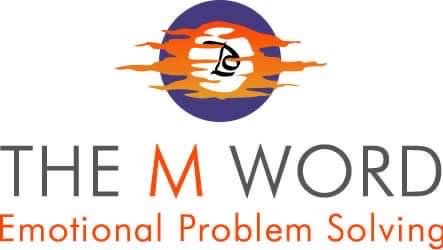Guide to Speaking at The National Neurodiversity Shows
Welcome to the speaker guide page for the National Neurodiversity Shows. This page is a resource for all speakers of the shows to access regardless of speaking experience or the show you’re speaking at. Please feel free to read only what is useful to you. We’ve summarised the important bits at the top, following which you can find information and assets for each show.
At the bottom of this page is a full guide to speaking for those who feel they want to read this.
Key Points
- Seminars are each allocated 30 minutes total. We advise 20 minutes max of presentation followed by Q&A.
- Please respect the time slots, the next speaker will be on immediately after you.
- For powerpoint/visual inputs please send us a copy of this at least 1 week before you’re speaking.
- Keep a USB of your presentation with you.
- If your plans change and you can’t make your speaker timeslot, please contact; [email protected] or call us on 01639 500550 asap.

Cardiff
Remember to tag the National Neurodiversity Shows in your post and we'll amplify your content. @natneuroshows
- Share on your social accounts, engage and bring awareness among your audience

Liverpool
Remember to tag the National Neurodiversity Shows in your post and we'll amplify your content. @natneuroshows
- Share on your social accounts, engage and bring awareness among your audience

Midlands
Remember to tag the National Neurodiversity Shows in your post and we'll amplify your content. @natneuroshows
- Share on your social accounts, engage and bring awareness among your audience
Full Speaker Guide
Promote Your Presentation
- Use the “I’m Speaking” Assets above: Prior to speaking at the show(s) it’s worth telling everyone that you’re going to be there. We’ll promote your seminar too on our website and social media, but it’s worth telling your following about your speaking gig.
Know Your Audience
- Assess your group: Your audience will be a mix of the general public and professionals from organisations looking to learn and improve their practises. Depending on your seminar title and topic, this may affect the make up of your audience, for example mostly professional, or families.
- Assess their level of knowledge; You might be an expert in your chosen topic, however your audience may or may not be. Some people will be looking to you for their very first insight into what you are going to talk about.
Engage Early, Maintain Attention
Start strong: The first 2-3 minutes set the tone. Share a compelling story, an intriguing question, or a thought-provoking statistic. Grab attention immediately to prevent your audience from tuning out.
Variety and pacing: As an experienced speaker, you know the importance of varying your tone, pace, and energy. Keep your delivery dynamic to maintain engagement. Use pauses for emphasis and avoid long stretches of monotony.
Audience interaction: Even seasoned presenters can fall into the trap of a monologue. Build in opportunities for interaction through questions, polls, or activities to keep the audience actively involved. This could be a quick poll, a show of hands, or asking for input during discussions.
Use Visuals Effectively
Don’t overdo it: Experienced presenters often rely on slides to support their points, but don’t let visuals overwhelm the content. Make sure slides are clean, minimal, and support the spoken message, rather than serve as a script.
Highlight key points: Ensure your slides highlight only the most essential points. Visuals should reinforce your ideas, not distract from them. Use them to emphasize major takeaways, key statistics, or illustrations.
Refine Your Body Language
Engage with the room: Avoid standing behind a podium for the entire seminar. Use purposeful movement—walk around, make eye contact, and open your body language to create an inclusive, dynamic atmosphere.
Mirror the energy: Match your body language and gestures to the content you’re discussing. More energetic or passionate points can be emphasized with bigger gestures, while quieter moments might call for a more controlled stance.
Use silence: Effective use of pauses is key. Allow moments of silence after key points to give the audience time to absorb the information and to create anticipation for what’s next.
Prepare for the Unexpected
Have a plan B: Even experienced speakers can face technical issues or unexpected interruptions. Whilst the venue tech team and the show staff will do their best to prevent this, it can still happen. Be prepared with backup plans, whether it’s a printed version of your slides, an alternate device, or an ability to carry the seminar smoothly without relying on technology.
Dealing with difficult questions: You may encounter challenging questions or interruptions. Try to remain calm and composed. Acknowledge the question, and if you don’t know the answer, offer to follow up later or encourage a discussion afterward.
Time Management – 30 Minutes Total Allocation
Respect time limits: Even if you are an expert, remember that time is limited. Practice your seminar beforehand to ensure you can deliver it within the allotted time without rushing at the end. Seminars are each allocated a total of 30 minutes in which to deliver your seminar, answer any questions and finish. We advise no more than 20 minutes of delivery to allow for this. Please respect the next presenter will be on immediately after you.
Buffer time: Allocate time for Q&A, but also leave room for unexpected delays. Avoid packing the entire presentation with content and remember that some discussions may take longer.
Close with Impact
How to finish: Consider what you’d like your audience to remember about your presentation. If there’s one thing you want them to leave with, it may be worth reiterating this at the end.
Continuous Self-Improvement
Seek feedback: As an experienced speaker, it’s easy to assume you know what worked and what didn’t, but feedback from attendees can provide valuable insights. Use this to refine your future presentations. If your time has finished please seek to do this outside the seminar room, remember there will be other presenters in immediately after you.
Review your own performance: After the seminar, reflect on what went well and where improvements can be made. Consider your energy levels, how effectively you engaged with the audience, and whether the seminar stayed on track.
Post-Seminar Engagement
Follow-up: As speaker, you will understand the value of nurturing relationships. Follow up with attendees, answer any remaining questions, and offer additional resources. This shows your continued commitment to their learning. Post about your speaking experience online, and tag us in @natneuroshows



